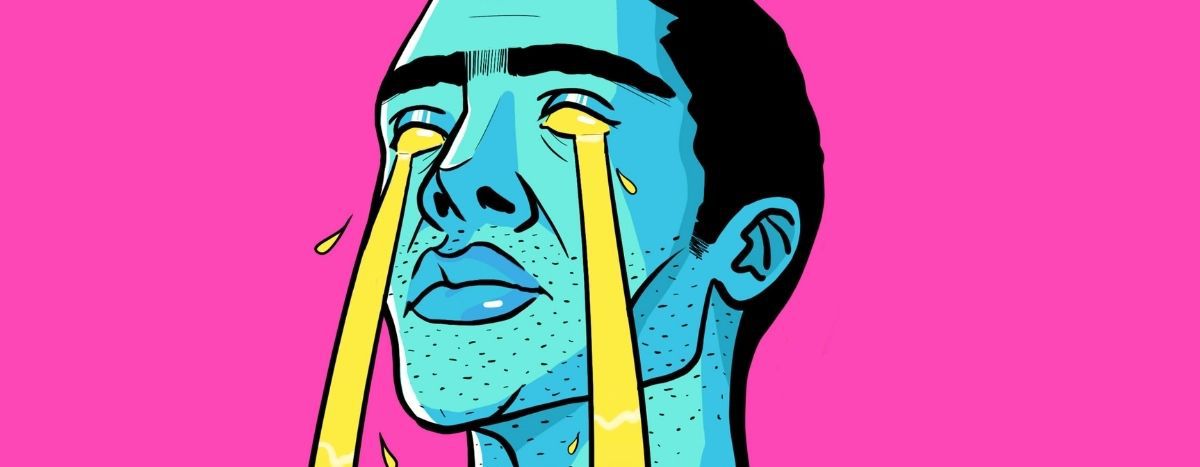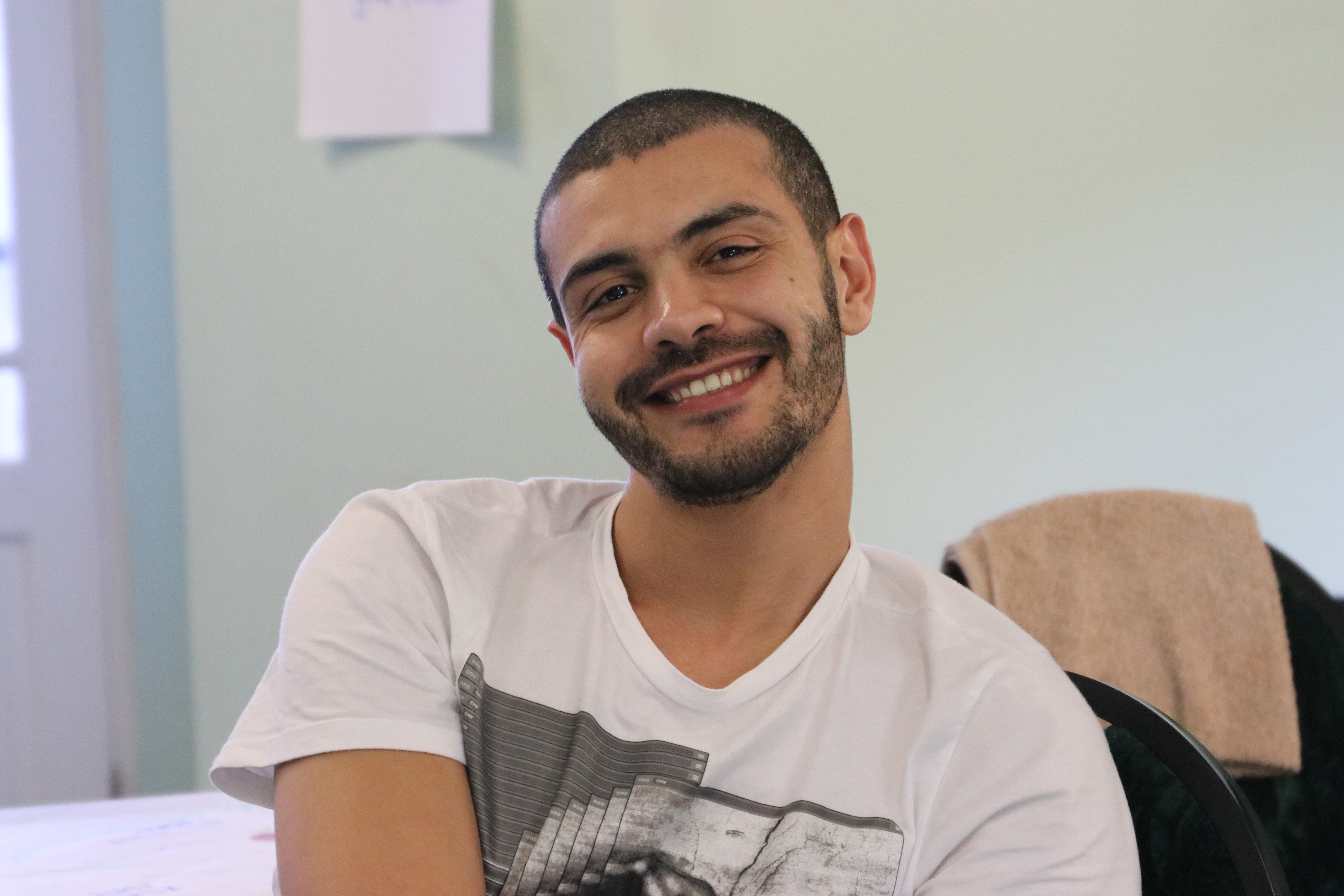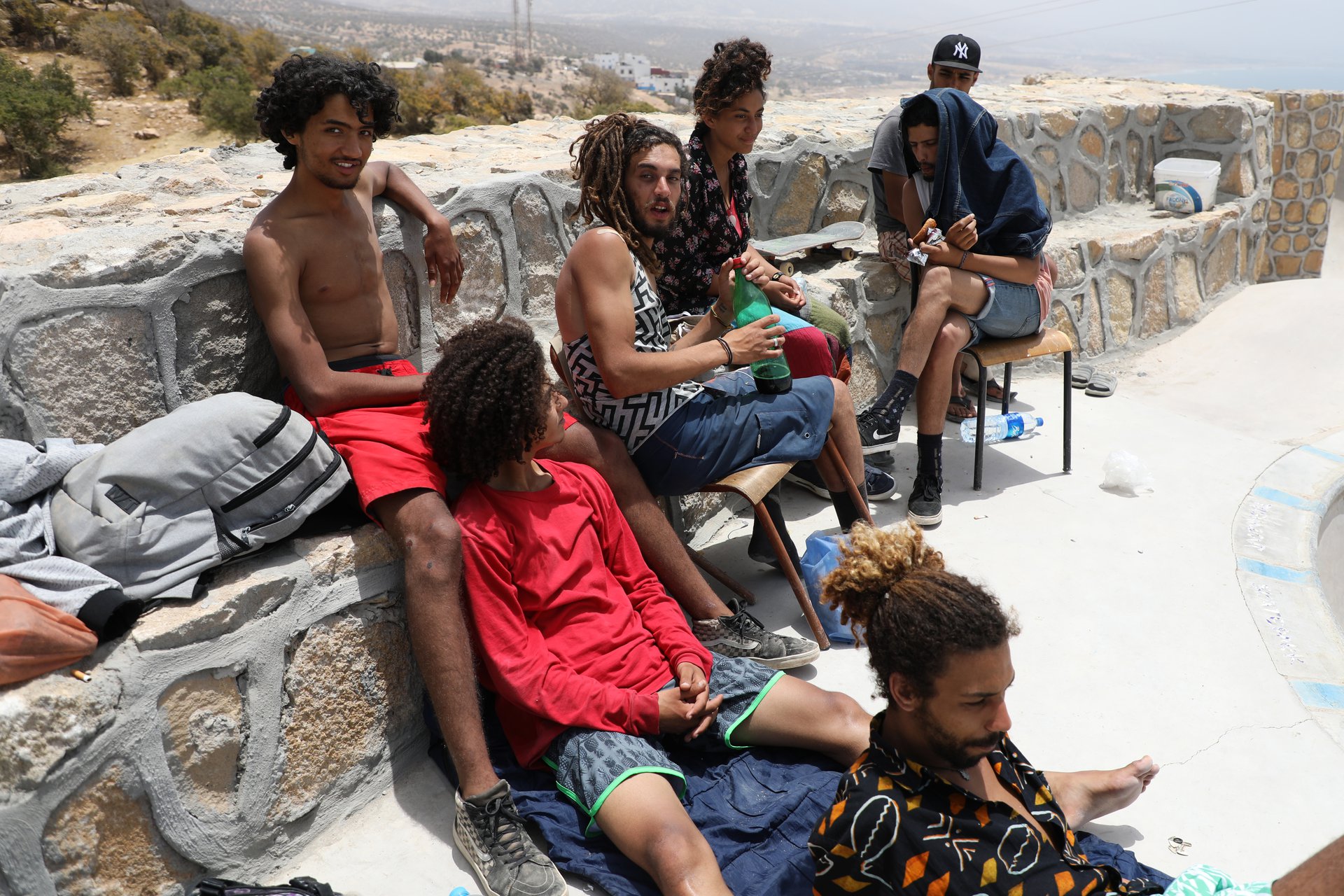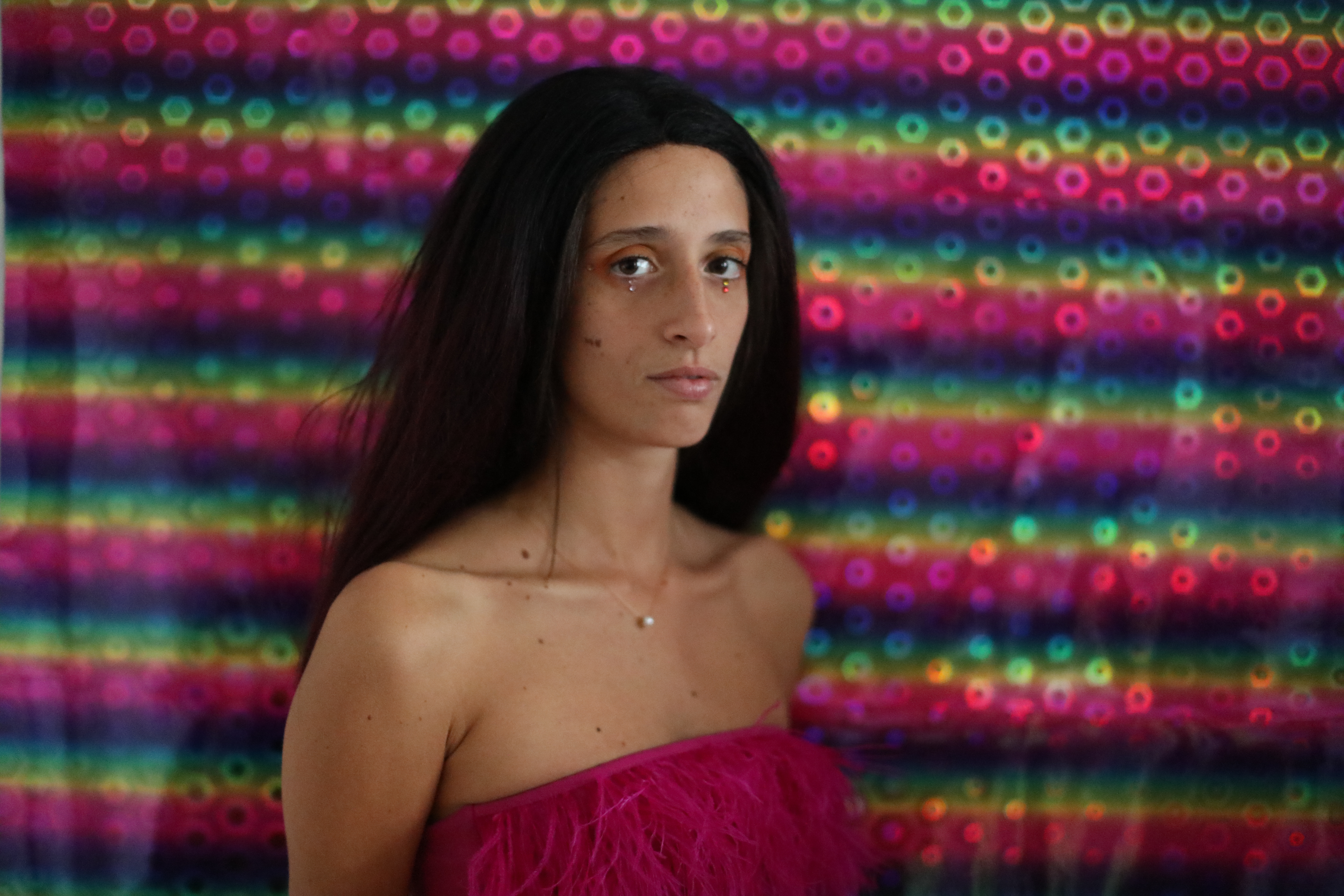
#LetsTalkDigital: for better online activism
Published on
- en
According to civil society organisations across the globe, digitalisation is not enough to guarantee democratic progress. Not least because it so often implies a Euro-centric approach. In the words of one activist: "Digital, in its DNA, does not have the word "inclusion." This article, written in partnership with Forus International, explores possible ways of shifting away from the current model of digitalisation, which restricts and represses, to one that enables and empowers.
Soufiane Hennani, a Moroccan activist, has developed a podcast called Machi Rojola which questions and re-thinks masculinity. Eman Borg has set-up the first LGBTQI+ platform on the small island of Gozo in Malta. Tanya Lallmon, a social justice activist from Mauritius, is fighting against ‘rainbow washing’ and for the inclusion of young people in sustainable development narratives and actions. All three activists rely on 'digital advocacy' as a means of mobilising in increasingly challenging online and offline contexts.
How do activists transform patterns of repression into 'matrix motifs' of resistance?
Europe and North Africa have a long record of stifling dissent by targeting activists and civil society organisations working on gender and LGBTQI+ issues. Campaigners in the regions can expect to face arbitrary arrest, ill-treatment in detention, and intrusive government surveillance as a result of their beliefs. This is especially true online. Recent research by Forus and TechSoup, based on interviews from over 15 countries, shows how activists are calling "for an inclusive, human rights-based and democratic form of digitalisation." But how do we get there?
"Protests today are as plural as the Morocco we are claiming"
In Morocco, Soufiane, who holds a PhD in molecular biology, has created a podcast called Machi Rojola, that stands for "inclusive masculinity." The goal of this ambitious initiative is to re-think gender roles in Moroccan society and overcome the eternal battle between toxic versus positive masculinity. He set it up as part of the 'Elille collective' during the recent lockdowns, right in the midst of a health, social and emotional crisis that has highlighted the vulnerability of activists, women and minorities both online and offline.

In a recent article, Rasha Younes, a queer feminist researcher investigating abuses against LGBT people in the Middle East and North Africa region with Human Rights Watch, has argued that digital platforms have a responsibility to prevent online spaces from becoming "a realm for state-sponsored repression."
"The consequences of digital surveillance and online discrimination spiked for LGBT people just as the Covid-19 pandemic and related lockdown measures closed down groups that had offered safe refuge, diminished existing communal safety nets, threatened already dire employment and health access, and forced individuals to endure often abusive environments," she adds.
Machi Rojola is a popular expression in Moroccan Arabic. It roughly translates as "not masculine" and is often used to indicate a lack of strength, courage or “machismo” (all attributes commonly associated with a narrow definition of manhood).
"It's clear that the situation is still difficult in the presence of liberticidal laws that criminalise individual freedoms, but the good news is that in recent years there has been a great emergence of free and committed voices," Soufiane explains. "Artists, activists, writers, journalists, web content creators... everyone is trying to create a freer and more diverse Morocco."
The podcast series has been streamed over 60,000 times since it came out. In May 2021 the Elille collective also launched the campaign #Koulnabachar (We are all humans), to raise public awareness about gender and sexuality-based discrimination. This is concrete proof of how activists are increasingly using a creative blend of digital and storytelling techniques to form a rebellious cocktail.
But what will the 'future of protest' look like? "It’s first of all digital", Soufiane argues. "Yet protesting today is done in a thousand and one ways. Online, in the street, in political parties, associations, movements, collectives... and this is very important. Today it's about being concerned enough to speak out. Protests are as plural as the Morocco we are claiming."
No Civic Space Without Digital Space!
From the rise of piracy to the fall of privacy, the digital realm has advantages and disadvantages. Through a series of consultations with civil society organisations, activists and citizens, the #LetsTalkDigital campaign aims to bring "the voices of the people" to the decision-making table and to express loud and clear that there can be "no civic space without digital space!"
"The activist sphere is a changing landscape," says Eman Borg, an LGTBQI+ activist in the island region of Gozo, Malta. "At a time where I needed a social platform to connect with other queer individuals my age, I found none, and so, through the power of digital connections and peer-to-peer relationships we joined forces to create the first LGBQI+ organisation on my island."
When Emon started LGBTQI+ Gozo, there was "no blueprint on how to lead and organise an LGBTQI group" both with regard to how to handle the difficulties of recruiting people for a social cause, but also the "intersectional challenges of being young and queer in an ageing population of a highly catholic island."

"For the first time in 2019 we launched a survey based on qualitative interviews with 53 LGBTQI Gozitans who lived, live and did their 'coming out' process in Gozo. This survey led to the first close-up study of what it means to be queer on a small island of this kind; what resources were and are needed, what projects and services are required and what our action plan should be as an organisation," Eman explains. Today, on top of that, Eman is using social media platforms to connect, discuss and contribute to legal and social change.
"The relationship we have with our members is strengthened by digital social platforms, as we are always one message away in conveying our fight for equality," Eman explains. This ease of connection, however, comes with three great challenges: to combat hate speech online, to build meaningful connections, and to ensure that individuals are safe in their households especially at the height of a global pandemic.
How do we bridge the digital with the 'analog'? And how do we make sure that people with little access to the infrastructure can still access the community they need?
"We recognised that even though social media plays an important role, we needed an alternative avenue. Our helpline 35699356622 is a key tool to connect and safeguard those in need through a secure and authentic platform," Eman explains.
"As much as we are connected, we are also a voice in the desert and are often misheard and misunderstood. This is especially a threat due to the lack of digital regulations when it comes to hate speech and digital hate crime. The opportunities presented through digital platforms are the same threats that limit the thriving of individuals." From echo-chambers to filter bubbles and the addictive power of self validation, civil society agrees that digital activism cannot be a substitute for on-the-ground activism and connections. They must be seen as complementary.
"I believe we owe it to future generations not to be complacent in our work, and to go back to grassroots activism to reflect the needs of every single individual. To converse with those who do not agree with us and to challenge our own comfort zone,” Eman explains.
A decolonial perspective on gender identity and digitalisation
According to civil society organisations across the globe interviewed for the #LetsTalkDigital campaign, digitalisation is not enough. Not least because it so often implies a Euro-centric approach. In the words of one activist: "Digital in its DNA, does not have the word 'inclusion.'"
If some argue that "algorithms are neutral", others want to push for a paradigm shift. One of these passionate souls is Tanya Lallmon, a social justice activist advocating for sustainable development at the intersection of gender, technology and human rights. In her various missions and responsibilities around the globe, she helps LGBTQI+ youth claim their rights by taking a decolonial perspective on sexual orientation, sex characteristics, gender identity and expression. In parallel, she advocates for diversity and inclusion while also harnessing international law to protect LGBTQI+ people from religiously motivated violence.
So, what role does digitalisation have in today’s social justice movements?
"Social media has already proved to be an integral part of protest in light of the Arab Spring. It also proved a useful way of avoiding the violent crackdowns and repression that many protesters experienced on the streets. Digital space provides a refuge whereby protesters can hide their identities, use encrypted communications and bypass governmental censorship," Tanya explains.

"Digitalisation enables suppressed minority groups to garner global support instead of being physically and geographically isolated. However, in light of Amnesty International revelations about the Pegasus spyware, it is crucial for protesters to be well-informed about the security risks to which they are exposed as well as the legal recourse to be taken in cases of abuse."
In recent months, from the Black Lives Matter protests, to the online activism around the crisis in Afghanistan, we have witnessed the paradox and struggle when it comes to 'being part of a movement and not just a moment'. How can we avoid being 'hashtag activists'?
"I think that the best LGBTQI+ rights campaigns are the ones that do not just slap a rainbow on, but instead base themselves on insights and issues in the community and shine a spotlight on them. The support goes beyond the typical ‘rainbow washing’ and shows the organisation as an authentic partner in the fight for equality," Tanya explains.
In the wake of the pandemic, where historical inequalities have been exacerbated, prejudices that manifest online are increasingly leading to physical violence. Marginalised communities, such as those that include LGBTQI+ people are especially vulnerable. There is a real need for deeper discussion on how to make sure that digitalisation doesn't reinforce the toxic cycles of discrimination and inequalities that it allegedly fights against.
"When the COVID-19 outbreak pushed most activities online, I was prompted to dig deeper into the intersection of human rights and technology. I learned that online surveillance and censorship impact everyone’s rights, predominantly those who are excluded in society. The use of new technology often reinforces cultural and customary biases, making those people particularly prone to discrimination and security threats," Tanya argues.

Tanya is the linchpin of a webinar series designed to mapping what is at stake for LGBTQI+ people in the virtual world. So far, the webinars have garnered more than 100,000 views and engaged more than 300,000 people. Now, through the #Reform53 campaign, a coalition of activists is calling for the leaders of all Commonwealth countries to reform laws (many of which date to colonial times) that discriminate against women and girls and LGBTQI+ people.
From censorship to poor media literacy, we have to face the multitude of struggles and opportunities linked to digitalisation. Online activism, in particular, comes in many forms and sizes, and with different degrees of risks. How can we make sure that communities have access to a healthy digital space? How can we be part of the conversation?
To contribute to the debate on this topic share the #LetsTalkDigital campaign and learn how you can make a difference in transforming digitalisation. We would like to thank Deidre de Burca and Yohan Cambet from Forus for their support in preparing this article as well as Soufiane Hennani, Eman Borg Tanya Lallmon and all those who participated in the digital enabling environment report.



